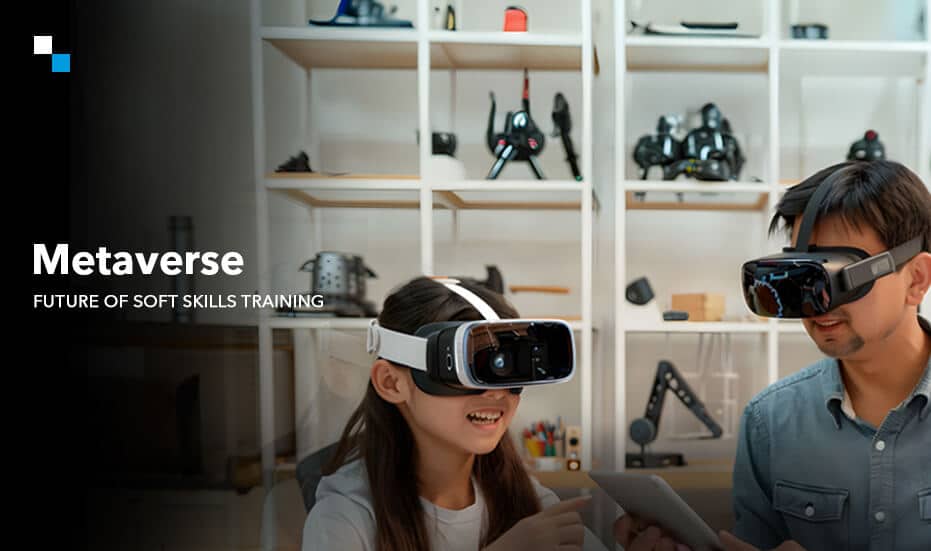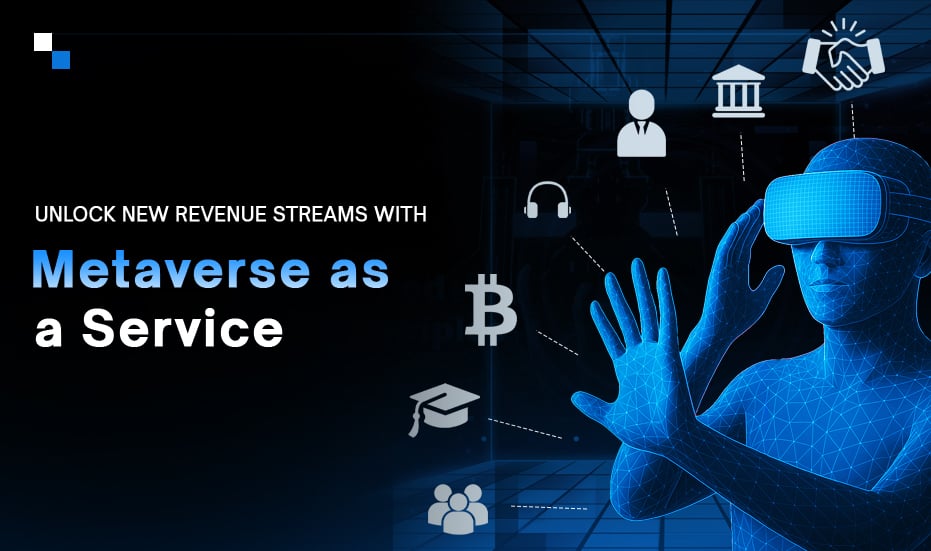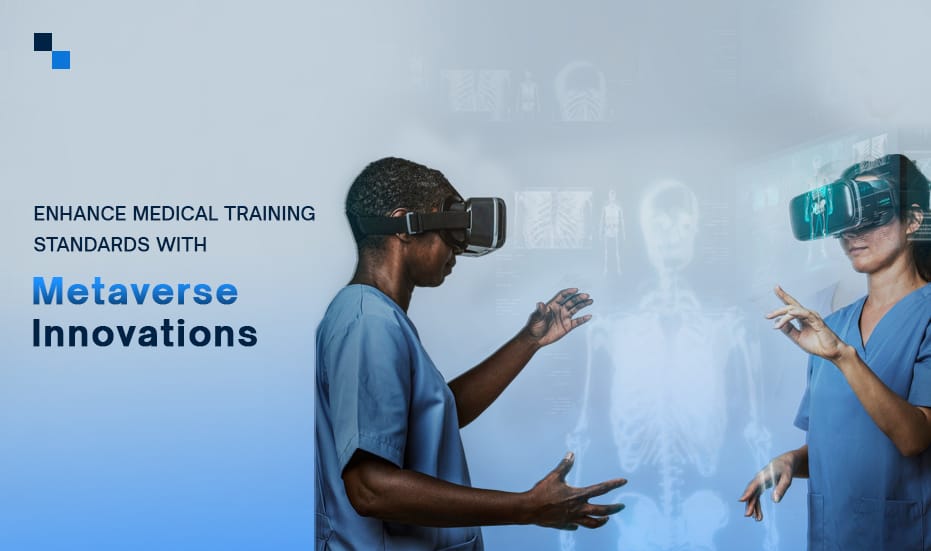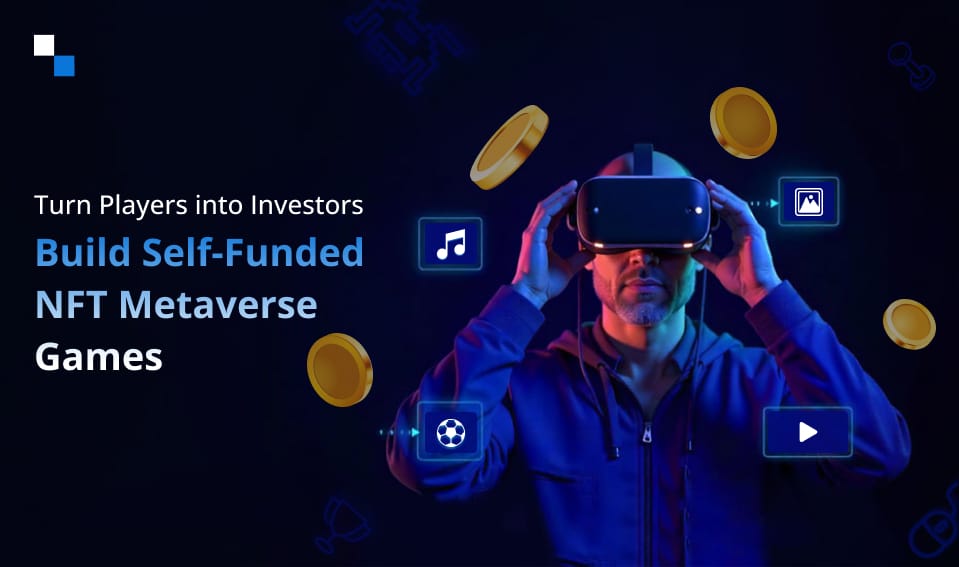
Cardano Plutus Smart Contract: A Detailed Discussion
July 16, 2024
Your 2024 Guide To Trend-Setter Exchange App Development
July 16, 2024In today’s competitive job market, technical skills are no longer enough. Employers are increasingly seeking candidates with strong soft skills. These are the interpersonal and personal qualities that enable us to navigate the workplace effectively. They encompass communication, teamwork, problem-solving, critical thinking, leadership, and adaptability – all crucial for building successful careers.
While traditional training methods have their place, they often fall short of equipping individuals with the essential soft skills needed for success. The metaverse platform for education presents a groundbreaking opportunity by harnessing its immersive and interactive capabilities. The metaverse has the potential to transform the way we train and develop soft skills, leading to a more well-rounded and prepared workforce.
This article explores the ways in which the metaverse for education is getting an edge over having immersive soft skill development. If you are interested in offering virtual soft skill training then metaverse education platform development is a profitable opportunity for you… How? This article will clarify that!
Let’s begin!
Challenges of Traditional Soft Skills Training Methods
While traditional methods like lectures, role-playing, and case studies have served as the foundation of soft skills training for years, they often struggle to keep pace with the dynamic demands of the modern workplace. Let’s have a closer look at the limitations of these approaches:
1. Lack of Engagement
- Traditional methods can be passive learning experiences. Lectures often involve one-way communication, with trainers delivering information that learners may passively absorb or forget.
- Discussions and Q&A sessions can help, but they often lack the dynamism needed to truly capture learners’ attention and spark active participation. This can lead to disengagement and difficulty retaining information.
2. Difficulty Creating Realistic Scenarios
- Role-playing can be a valuable tool, but it often takes place in a classroom setting – a far cry from the real-world situations employees encounter. This disconnect can make it difficult for learners to fully immerse themselves in the scenario and translate their practised skills to genuine workplace interactions.
- Case studies, while offering valuable frameworks, often present pre-defined scenarios. This limits the opportunity for learners to develop critical thinking and problem-solving skills in the face of unexpected situations.
3. Limited Opportunities for Practice
- Traditional training programs often offer a single session or workshop, which may not be enough for learners to solidify their understanding and truly internalize the skills.
- Feedback after role-playing or simulations may be limited or generic, hindering individual growth and the ability to identify specific areas for improvement.
These limitations can leave a gap between the theoretical knowledge gained in traditional training and the ability to confidently apply those skills in real-world situations. As a result, employees may struggle with communication, collaboration, or conflict resolution – hindering their overall performance and career development.

How Can Metaverse Education Platform Development Help You Master In-Demand Soft Skills?
The metaverse platform for education steps in as a game-changer for soft skills training by offering an immersive and interactive learning environment. You can step into a virtual conference room, deliver a presentation to a lifelike audience, and receive immediate feedback on your body language and communication style. Let’s see how key features of the metaverse empower transformative soft skills training:
1. Immersive Learning
The metaverse platform creates a three-dimensional virtual environment where you can actively engage in simulations that mirror real-world scenarios. It’s like practising a job interview in a virtual office setting, delivering a presentation in a simulated auditorium filled with avatars, or negotiating a deal in a virtual boardroom. This immersive experience allows you to:
- Practice in a Safe Space: Make mistakes and learn from them without real-world consequences.
- Boost Confidence: Gain valuable experience and overcome anxieties associated with real-world situations.
- Refine Your Skills: Repeatedly practice your skills, experiment with different approaches, and receive immediate feedback.
2. Developing Social Presence
Through avatars, you can interact with virtual representations of yourself. This allows you to focus on developing your:
- Communication Skills: Practice active listening, clear articulation, and effective use of body language in a virtual environment.
- Social Interaction: Develop your social presence, build rapport with virtual colleagues, and refine your nonverbal communication.
- Intercultural Sensitivity: Interact with avatars representing diverse cultures, fostering cultural awareness and effective communication across borders.
3. Collaborative Learning
The metaverse for education fosters teamwork by enabling you to work on projects and tasks with virtual teams. This allows you to:
- Practice Teamwork: Develop collaboration skills, leadership capabilities, and conflict resolution strategies in a realistic setting.
- Refine Communication Styles: Learn to communicate effectively with diverse personalities within a virtual team environment.
- Build Problem-Solving Skills: Work together to overcome challenges, fostering critical thinking and collaborative problem-solving skills.
4. Personalized Learning
The metaverse education platform development provides the potential for tailored training experiences. You can leverage:
- Customized Scenarios: Training simulations can be designed to address your individual needs and skill gaps.
- Real-Time Feedback: Receive immediate feedback on your performance within simulations, allowing you to adjust your approach and focus on areas for improvement.
The metaverse education platform development empowers learners to actively engage in soft skills training, fostering a more immersive and effective experience that translates directly to success in the real world.
Metaverse for Education as a Soft Skills Training Powerhouse
The metaverse education platform development offers a versatile platform for training a diverse range of soft skills. On a glimpse into how specific skills can be honed in this immersive environment-
-
Public Speaking
One can practice presentations in a virtual auditorium filled with avatars representing a diverse audience. You can adjust your delivery, manage stage fright, and receive real-time feedback on your body language and presentation style. This can benefit professionals in various fields, from educators and lawyers to entrepreneurs and marketing executives.
-
Conflict Resolution
Step into a virtual workplace scenario where a team disagreement arises. The metaverse platform for education allows you to practice active listening, negotiation techniques, and conflict resolution strategies in a safe environment. This is valuable for managers, team leaders, and anyone who interacts with colleagues on a regular basis.
-
Customer Service
Train in a virtual customer service environment where you can handle challenging situations like returns, complaints, or angry customers. The metaverse allows you to practice empathy, active listening, and de-escalation techniques, making you more prepared to handle real-world customer interactions. This is essential for anyone in a customer-facing role, from retail associates to hospitality professionals.
-
Leadership
Lead a virtual team on a project within the metaverse for education. You can delegate tasks, manage team dynamics, and practice effective communication strategies. This allows you to develop your leadership skills, decision-making ability, and the ability to inspire your virtual team. This is beneficial for managers, supervisors, and aspiring leaders across industries.
-
Intercultural Communication
Interact with virtual avatars representing diverse cultures. This allows you to develop cultural sensitivity, nonverbal communication skills, and effective communication strategies across different cultural backgrounds. This is valuable for anyone who interacts with international colleagues or clients, from diplomats and business professionals to educators and international aid workers.
These are just a few examples, and the possibilities for soft skills training in the metaverse are vast. From negotiation and time management to empathy and critical thinking – the metaverse for education can provide a dynamic and engaging platform to develop the skills needed for success in any profession.

How Antier Can Help?
The potential of the metaverse for education for soft skills training is undeniable. It offers a dynamic and engaging platform that transcends the limitations of traditional methods. By stepping into this immersive virtual world, you can actively participate in realistic simulations, refine your social presence, collaborate effectively with virtual teams, and receive personalized feedback – all leading to the mastery of crucial soft skills.
As a leading innovator in the metaverse education platform development, Antier is at the forefront of developing cutting-edge soft skills training programs within the metaverse. We leverage the power of this technology to create customized training experiences that cater to your specific needs and industry. With our services, you can easily render the skills needed to thrive in today’s dynamic job market.
Schedule a free consultation to discuss and create an immersive metaverse training platform!



